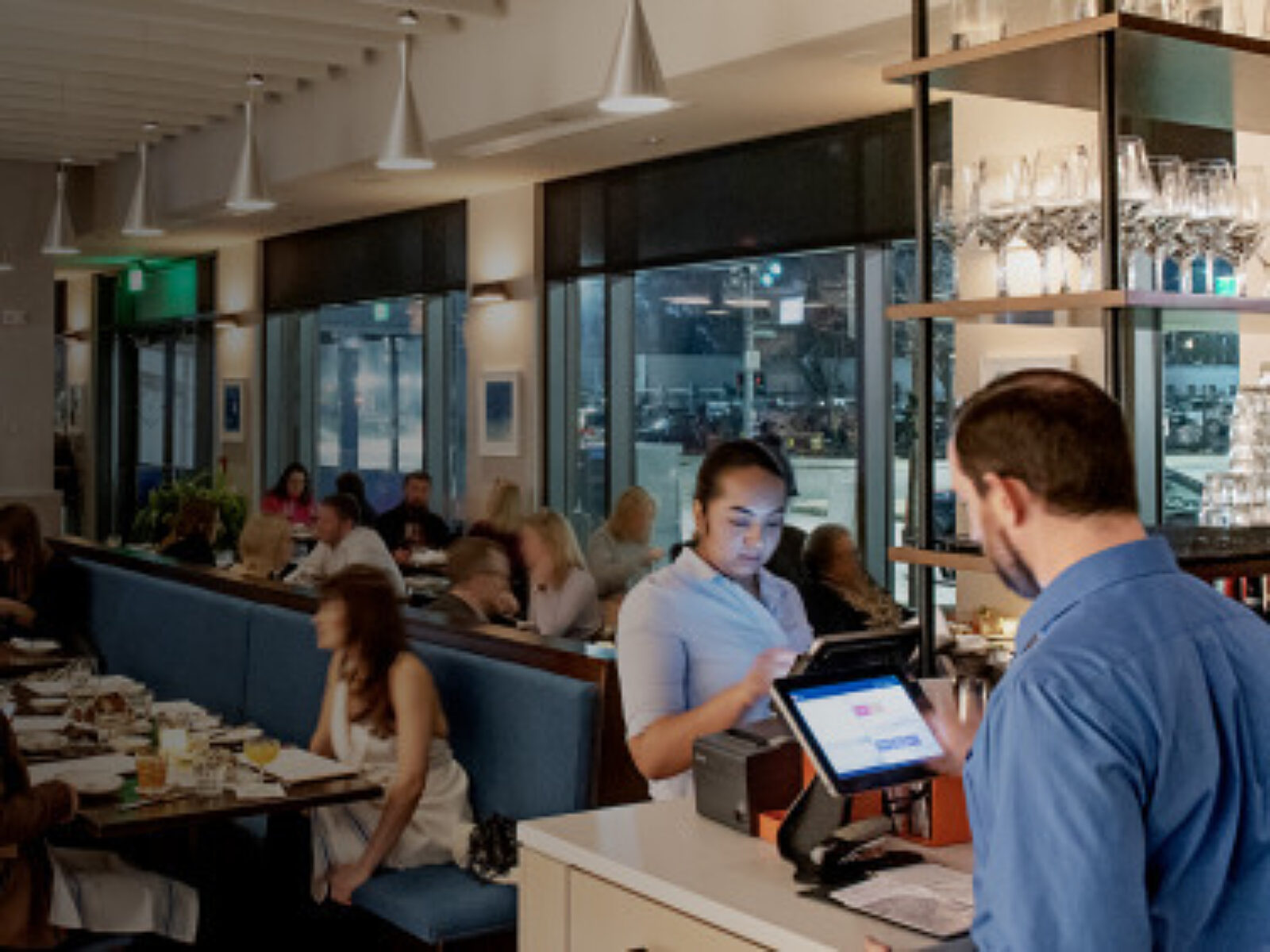
Boosting Morale Could Be Your Key to Retention
Looking to improve staff retention? Turn your attention inward and focus on boosting employee morale.

Caroline PriceAuthor
The secret to mastering employee retention could be right under your nose. Though industry-wide turnover issues can stress out even the most seasoned restaurateur, turning inward to focus on employee morale could be the silver bullet you need to keep staff around.
In a study by EmployeeChannel, only 16% of employees said they felt “connected [to] and engaged” with their employers. In the restaurant business, this lack of engagement directly translates to the incredibly low tenure of employees in both front- and back-of-house jobs. Employee engagement also affects the guest experience — if your staff feels fulfilled, engaged, and invested in their work, they'll create a positive environment for your customers.
Even if your plate is already full, keeping your team engaged is easy — and it’s actually pretty fun. Here are six actionable ways you can boost employee morale in your restaurant, including examples, tips, and tricks from real restaurants.
6 Ways to Boost Employee Morale and Improve Retention in Your Restaurant
1. Empower your team with collaborative scheduling.
A study conducted by the Southern Medical University found that an employee’s sense of being in control or respected directly correlates to morale. When employees are included in decisions that affect them, they’ll feel more valued, respected, and invested in their success (and the success of the business). So, at a minimum, consider including your team in the why behind your decisions.
One way to help your employees feel more empowered — while ensuring that your restaurant is properly staffed and not overworked — is to allow them to set their own availability and collaborate on scheduling.
Investing in restaurant scheduling software will allow employees to submit their own availability, facilitate shift trades, and coordinate working hours among themselves. When hiring a new team member into such a system, make sure they understand how many hours they’re expected to work and when. Clearly communicate your scheduling policies to them, and remind existing staff of them, too. Involving everyone in the process will foster a sense of respect for the staff schedule.
Collaborative scheduling is a win-win for staff and management: By reducing scheduling stress and boosting morale, it also cuts back on time spent managing the team.
Restaurant Scheduling Template
Use the Restaurant Scheduling Template to easily schedule your restaurant staff's shifts.

2. Offer on-the-job skills training.
It can cost up to 33% of an employee’s base salary to replace them, according to HR Dive. That’s no small change out of your restaurant’s wallet, but fortunately there are ways to avoid this burden.
One way to reduce turnover and improve morale in your restaurant — while avoiding the steep cost of new hiring — is to set new employees up for success from day one with on-the-job skills training.
This training shows that you value your employees’ professional development and helps them see the industry as a more viable long-term career path, all increasing the likelihood that they’ll stick around.
Mission Taqueria in Philadelphia does this well, providing educational opportunities for the staff to constantly improve their skills. One way they invest in their staff is their monthly TACOLAB event, which features a guest chef who creates a one-night-only menu. This is a draw for guests, but also a way for employees to learn new techniques and try out new recipes.
A pool of well-trained employees is an incredible asset, as they can then help train new (or existing) employees. What tips or knowledge can servers who consistently get tips over 20% share with other, less successful servers? Could they share their strategies with the rest of the team to improve the customer experience for all? Meet with top-performing staff members and see if there are commonalities or patterns that could be established as best practices for the entire staff. Ask them to informally describe their strategies for providing excellent service to the other members of their team.
This will give them a greater sense of purpose and make them more confident in their abilities, while boosting the confidence of new or under-performing employees as well. By facilitating these opportunities, managers communicate to their staff that they care about their success in the industry.
3. Recognize your employees’ successes.
Do you take time to celebrate moments when team members go above and beyond?
A big component of engaging employees is recognizing those who are excelling. Gallup has reported that highly engaged businesses achieve a 10% increase in customer ratings and a 20% increase in sales, so it literally pays to acknowledge those servers upselling like nobody’s business and driving revenue because of it.
Thoughtful but straightforward acts of recognition can pay dividends, and can range from a simple thank-you note or recognition letter to a round of applause in a team meeting or a more structured “Employee of the Month” program.
You can also shout out your employees on social media. Trina’s Starlite Lounge, a local favorite in Cambridge, Massachusetts, is a pro at this. They regularly share photos of their team’s smiling faces on Instagram.
Recognition, big or small, can go a long way towards positively boosting morale. And how you recognize your staff’s hard work is just as important as the recognition itself — make it genuine, timely, and personalized. Present an award at your staff meeting to motivate the team just before nightly service. The recipient will get a confidence boost, while the rest of the team will be inspired to model their behavior on their awarded teammate.
If you have the resources, consider offering other incentives like a bonus or paid day (or half day) off. Be sure to tailor your employee incentive to your staff, offering something your employees would actually enjoy and get excited about.
4. Provide free (or discounted) staff meals.
Another way to boost morale and engagement is to bring employees closer to the restaurant’s food and menu. Feeding your staff and letting them try new menu items — and perhaps even inviting them to give feedback or ideas — will help them better sell dishes to your patrons.
A Glassdoor study reported that nearly half of U.S. workers and job seekers (48%) cited attractive benefits and perks — one being free food — as a key factor in determining which jobs they apply for, and at which jobs they end up staying.
Instead of throwing away already-prepped perishables at the end of the night, turn them into free food or meals for the team. This helps you reduce food waste, but also provides employees with a nice perk and helps them give guests well-informed recommendations.
Just be sure to establish employee meal policies to keep things from getting out of hand and to keep everyone on the same page. What meals are allowed for free or at a discount and how and when these meals should be prepared and distributed are just a few things you’ll want to establish.
Restaurants are fueled by a love of food — your staff should love it as much as you do. And they will, if given the opportunity.
5. Reward employees’ loyalty.
In 2018, the U.S. Bureau of Labor Statistics reported that the median number of years wage and salary workers had been with their current employer was 4.2 years. Meanwhile, in the restaurant industry, a survey conducted by 7shifts reported the average tenure of a restaurant employee as just one month and 26 days.
To avoid losing employees and save on rehiring costs, reward employees who do stick around. Celebrate work anniversaries with a small celebration, a gift card, or a paid day of; offer tiers of paid time off, promotions, raises, bonuses, or even health benefits to those who spend more time at your restaurant. Staff who see their fellow employees reaping these benefits will feel inspired to do the same.
In Philadelphia, the Bynum Hospitality Group hires and rewards people who are passionate and inspired by the business’s mission, which has led to long-term, committed employees.
Chicago’s Home Run Inn Pizza implements a similar loyalty and rewards program: They noticed that their staff tended to quit after being with the business for certain periods of time — 2 weeks, 3 months, and so on. As a solution, they created a tailored incentive and rewards program to motivate staff and celebrate loyalty early on.
Implementing a similar program in your restaurant can help you get ahead of staff turnover and keep employees around longer.
6. Schedule non-work-related activities for your team.
To boost morale and build a sense of camaraderie in a less structured way, simply give your employees opportunities to unwind, have fun, and bond together.
Carve out time for your staff to relax, revitalize, and decompress between shifts. Team-building exercises are a great way to boost morale and increase engagement — paintball, escape rooms, or rock climbing are great options. Just ask your team what they’d be interested in doing together, as their buy-in is important.
Philly’s Mission Taqueria makes sure to completely shut down once a year to celebrate the restaurant’s birthday with a full team outing, acknowledging how the work of each team member contributes to their success.
A Happy Employee is an Engaged Employee
In today’s extremely competitive labor market, it’s critical to keep employees happy, motivated, and productive. By focusing on boosting morale in your restaurant, you’ll see positive improvement across the board — in culture, hiring, guest experience, employee retention, and more.
The happier restaurant employees are, the harder they work and the better equipped they’ll be to deliver delightful guest experiences.
To learn more about restaurant staffing and retention, check out Toast Video Courses.
Related Restaurant Resources
- Restaurant Assistant Manager Job Description
- Prep Cook Job Description
- Chef Job Description
- Sommelier Job Description
- Kitchen Manager Job Description
- Pastry Chef Job Description
- Restaurant General Manager Job Description
- Bartender Job Description
- Barista Job Description
- Dishwasher Job Description
- Host Job Description
- Barback Job Description
- Busser Job Description
- Executive Chef Job Description
- Sous Chef Job Description
- Line Cook Job Description
Is this article helpful?
DISCLAIMER: This information is provided for general informational purposes only, and publication does not constitute an endorsement. Toast does not warrant the accuracy or completeness of any information, text, graphics, links, or other items contained within this content. Toast does not guarantee you will achieve any specific results if you follow any advice herein. It may be advisable for you to consult with a professional such as a lawyer, accountant, or business advisor for advice specific to your situation.
Read More
Subscribe to On the Line
Sign up to get industry intel, advice, tools, and honest takes from real people tackling their restaurants’ greatest challenges.


